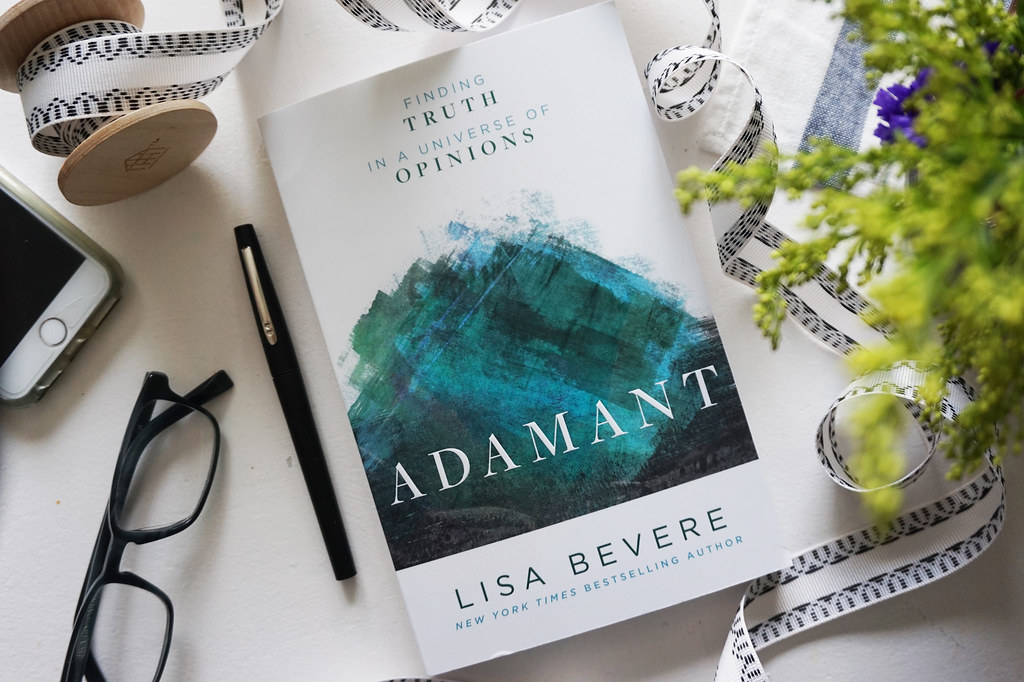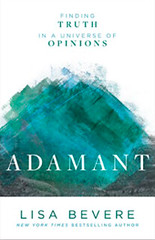My admiration of this woman absolutely knows no end, and Lisa Bevere’s bold, authentic approach to embodying the words of Christ are a blazing torch for this generation. She beautifully weaves personal experience with profound biblical truth, giving us something relatable and practical all at once. In this post, she opens up about her own story with her mother—both her successes and failures—to show us a better way to love. It’s an unspeakable grace to welcome Lisa to the farm’s front porch today…
To say that my mother and I had relational challenges is an understatement of grand proportions.
As far back as I can remember, there was an undercurrent of tension between us.
Over the last ten years, whenever I called her, the conversation would quickly escalate to a misunderstanding of some sort. Perhaps you can relate. And yet even now I am hard-pressed to even remember the harsh words that passed between us.
What I remember most are the words I didn’t say.I wish I’d been more intentional to show and tell her I loved her when I had the chance.
When it came to expressing love, my mother and I spoke languages as different as Italian and English. Sadly, I refused to become bilingual until much too late.
Yes, near the end, in the last month of her life, I said all the things I wished I had said all along. I told her I loved her. I asked her to forgive me for any and every grievance, large or small.
As I held onto her frail frame, tethered to the hospital bed by tubes and wires, she leaned into my ear and graciously whispered my reprieve.
That’s when the levee broke. We both cried, overwhelmed by the knowledge we had so little time to live this love out this side of eternity.
Less than a month later she was gone.









I’m glad I have the promise of eternity—it softened the blow of this reality.
But even so, regret can be a hard taskmaster.
I’ve often responded to its accusations and remorse by either making excuses or casting blame.
But over the years I’ve learned to handle it with a different approach: owning my mistakes. Though at first, it proves the more painful option, I can promise you it saves so much unnecessary hurt in the long run.
The truth is I should have loved my mother better sooner. I was in the stronger position to love her well, and I didn’t.
While I can’t change the past, I am left with clear choices going forward. I can feel bad and the sadness will stay with me, or I can flip my mistakes into lessons for others.
You see, once you own a mistake, it no longer owns you.
God is a redeemer, and His redemptive nature extends into the deep caverns of our regrets and failures. When we bring our failures and regrets into the light, we find God’s redemptive love brings something beautiful out of the ashes.
Please allow my mistakes to be your instructor and love well while you can.
Be kind while it is in your power.
Be generous in word and deed.
Look beyond the actions and search for God’s heart in the matter.
Have the hard talks. Extend olive branches. Reconcile. Own your part even if they refuse to own theirs.
You will never regret kind words, warmth, or acts of generosity—but you will regret the love you never gave.Love well, and you will live well—for love is our agent of transformation. Our heavenly Father, who is adamant in His love for us, is likewise adamant that we love one another.
There are so many people we now call enemies who are actually just hurting people who are desperate to be loved.
As followers of Christ, we do not have the option of not loving them. Loving one another is not merely a biblical suggestion. Jesus tells us, “This is my commandment, that you love one another as I have loved you” (John 15:12).
The last five words are the challenge for me: “…as I have loved you.”
Jesus is our pattern.
How different it all would have been if I had loved as Jesus loves me.
Love how Jesus loves you. This may seem a bit abstract at times. It is hard to find specific Bible examples for our daily journey. Here is what I have learned: We won’t go too far wrong if we love others the way we wish we’d been loved.
We are not limited to how well our parents loved us, or anyone else, for that matter.
This is good news. At the end of the day, others are not our example of how to love. Jesus is. And His example is available for all to follow.
Jesus loved people before they ever loved Him back. There are those who will never give Him anything in return, yet He lavishes His love on them still.
It is His very nature to love. It is who He is at the very core of His being. And as His children, it is who He calls us to be. What an amazing honor that He invites us to be like Him!
Beloved, we are those who have received God’s adamant, unwavering, steadfast love.
Aren’t you so glad He didn’t wait until we deserved it, but rather, freely lavished His affection on us?
Now, dear one, with the same hands that have freely received this love, may we follow the pattern of Jesus and freely extend it to a world in need.
This woman is undeniably anointed and the power of God ignites her words.
Lisa Bevere is the New York Times bestselling author of Without Rival, an internationally known speaker, and the cofounder of Messenger International. The story she shares here with our little community is from her newest book Adamant: Finding Truth in a Universe of Opinions.
In her new book Adamant, Lisa unpacks how truth is not a river that changes with the passage of time, but the rock upon which we must build our lives. Using the mediums of Scripture and story, Lisa takes readers on a journey into the Mountain of God, to the one place they can learn not only to abide in God’s unshakeable truth and love, but become adamant — people who are unmovable, determined, and steadfast.
[ Our humble thanks to Baker for their partnership in today’s devotion ]








